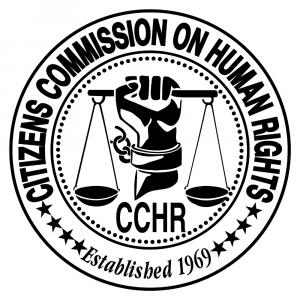Noise from vehicle traffic around schools has a damaging effect on schoolchildren’s development of attention and working memory, which are important for learning and success in school.

Keith Conners, considered the “father of ADHD,” later realized that ADHD diagnoses were out of control and called them “an epidemic of tragic proportions.”
Noise from traffic and aircraft negatively impact children’s attention and memory at an important time in their lives for cognitive development.
— Maria Foraster, PhD, MPH, Barcelona Institute for Global Health
WASHINGTON, DC, US, June 23, 2022 /EINPresswire.com/ — A new study indicates that noise from vehicle traffic around schools has a damaging effect on young students’ cognitive development, impairing the children’s development of the attention and working memory that are important for learning and success in school.
Noting that cognitive functions develop significantly in elementary school age children, researchers in Spain investigated the association between exposure to the noise from road traffic and the cognitive development in schoolchildren aged 7 to 10 years. The students were given computerized testing every three months for a year, and the results were assessed against the road traffic noise outside and inside the school.
The study, published in PLOS Medicine, concluded: “Higher exposure to road traffic noise at school relates to poorer development of attention and working memory. These are important for learning.”
The researchers observed that these results are similar to the cognitive impairment found in children exposed to aircraft noise. “In schoolchildren, there is substantial evidence for the association between exposure to aircraft noise and decreased cognitive development, particularly for reading comprehension, achievement tests, and long-term memory,” they wrote. Air pollution has also been associated with impaired cognitive development in children, they noted.
Given the large number of children exposed to road traffic noise at school, especially in urban areas, researchers view the problem as a public health issue and call for the enacting of policies to reduce the noise. They conclude by stating: “Together, this evidence indicates that efficient interventions to protect the school environment should target transportation and consider not only cleaner air but also quieter school environments.”
The Citizens Commission on Human Rights (CCHR) supports effective solutions to the real causes of children’s inattention and behavioral issues, rather than knee-jerk reactions to label them with attention deficit hyperactivity disorder (ADHD) or some other psychiatric “disorder” and prescribe them mind-altering drugs that carry the risk of serious side effects.
“ADHD” is a label subjectively applied to children who are inattentive or lack concentration – behaviors common to children. The “diagnosis” has no scientific validity, making it a label that is far too easy to pin on children. Even the late psychologist Keith Conners, who conducted the first formal trials on methylphenidate and has been called the “father of ADHD,” later realized that ADHD diagnoses were out of control, characterizing the huge number of ADHD misdiagnoses as “an epidemic of tragic proportions.”
Despite often-repeated claims that a chemical imbalance of the brain causes ADHD symptoms, the claim has never been proven. Even so, more than 3 million American children under the age of 18 have been prescribed ADHD drugs, including 58,000 children 5 years of age and younger.
The drug most commonly prescribed for so-called ADHD, methylphenidate, is classified by the U.S. Drug Enforcement Administration (DEA) as a controlled substance, in the same category as cocaine, morphine and opium. Serious side effects of the drug include restlessness, uncontrolled muscle movements, insomnia, stunted growth, mood or behavior changes, depression, high blood pressure, heart problems and stroke. Suicide is a known risk when discontinuing the drug.
Fred Baughman, Jr., M.D., a retired pediatric neurologist and author of The ADHD Fraud: How Psychiatry Makes “Patients” of Normal Children, said that rather than children gaining self-control, they are led to “believe they have something wrong with their brains that makes it impossible for them to control themselves without a pill.”
Physician Mary Ann Block, D.O., author of No More ADHD, says: “By taking a thorough history and giving these children a complete physical exam as well as doing lab tests and allergy testing, I have consistently found that these children do not have ADHD, but instead have allergies, dietary problems, nutritional deficiencies, thyroid problems and learning difficulties that are causing their symptoms. All of these medical and educational problems can be treated, allowing the child to be successful, without being drugged.”
WARNING: Anyone wishing to discontinue or change the dose of an ADHD drug or other behavioral drug is cautioned to do so only under the supervision of a physician because of potentially dangerous withdrawal symptoms.
CCHR was co-founded in 1969 by members of the Church of Scientology and the late psychiatrist and humanitarian Thomas Szasz, M.D., recognized by many academics as modern psychiatry’s most authoritative critic, to eradicate abuses and restore human rights and dignity to the field of mental health. CCHR has been instrumental in obtaining 228 laws against psychiatric abuses and violations of human rights worldwide.
The CCHR National Affairs Office in Washington, DC, has advocated for mental health rights and protections at the state and federal level. The CCHR traveling exhibit, which has toured 441 major cities worldwide and educated over 800,000 people on the history to the present day of abusive psychiatric practices, has been displayed at the Congressional Black Caucus Foundation Annual Legislative Conference in Washington, DC, and at other locations.
Anne Goedeke
Citizens Commission on Human Rights, National Affairs Office
+1 202-349-9267
email us here
Visit us on social media:
Facebook
Childhood is Not a Mental Disorder
![]()
Health News - originally published at Health News -




 ,
,

